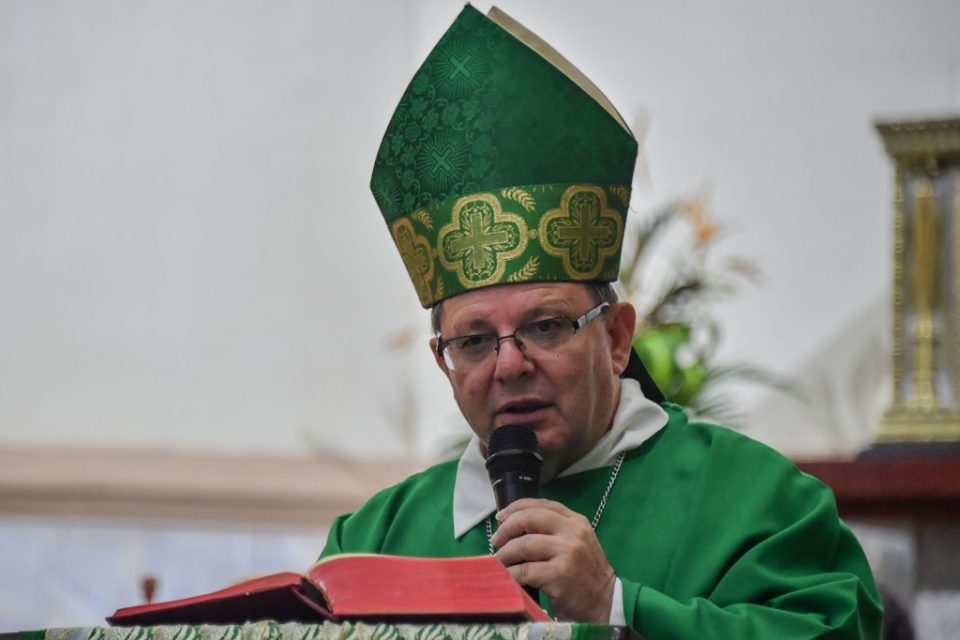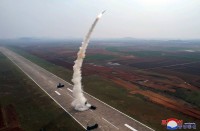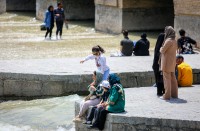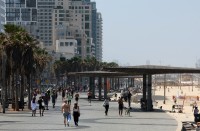
by Allison Jackson, with Valeria Pacheco in Puerto Maldonado, Peru
Agence France Presse
ITAITUBA, Brazil (AFP) — A shortage of Catholic priests in the Amazon is eroding the church’s influence in the remote region, bishops in Brazil and Peru warn, ahead of a Vatican synod dedicated to the rainforest.
Wilmar Santin, one of scores of Brazilian bishops set to attend the October 6-27 gathering, says the church is ceding ground to more nimble Evangelical rivals and needs to lift its game.
“What new paths can we offer our flocks so that they graze here and don’t go to our neighbor’s pasture?” asks Santin, who presides over an area of the Amazon equivalent to nearly half the size of Germany.
“Because we aren’t giving or preserving the pasture as it should be for them. We are failing.”
Recruiting more indigenous priests would help, he tells AFP, but that would require adapting the church’s training so they can qualify.
Very few indigenous men have been ordained so far in Brazil.
Another option set to be discussed at the synod is allowing married men to be ordained in remote areas, such as the Amazon.
Catholic Church’s Pope Francis has repeatedly said there is no doctrinal prohibition on married men who have reached a certain age from becoming priests, and therefore the protocol could be changed.
But in January this year, he seemed to retreat from the idea, describing celibacy as “a gift to the Church.”
The pope nevertheless conceded “some possibilities for far-flung places,” such as Pacific islands or the Amazon where “there is a pastoral necessity,” though he added that the decision was not his to make.
Santin says 21 priests and nine brothers serve the Itaituba diocese, which spans 175,365 square kilometers (about 67,710 square miles) and takes in six municipalities.
“It is a small number for these needs,” Santin says at his residence in Itaituba, a riverside town in Para state.
While Brazil remains the world’s most populous Catholic country, its flock has shrunk as evangelical Protestant churches grow.
Around 64 percent of the population identified as Catholic, according to the 2010 census. That compares with 74 percent in 2000.
With fewer European missionaries coming to Latin America, there is a growing need to recruit indigenous priests, says David Martinez, a Spanish-born bishop in Puerto Maldonado, Peru.
“We do not want to be a church to visit the communities — we want to be a church… of permanence,” Martinez, who is also a secretary of the Amazon synod, told reporters in Peru.
“The church wants the Amazonian indigenous people themselves to assume that leadership, to feel (the church) not as a foreign entity but as their own.”
– Calling out ‘barbarities’ –
Threats to the Amazon rainforest will also be on the agenda at the synod — rankling President Jair Bolsonaro, who has been skewered by European governments and activists over his environmental policies.
Bolsonaro has accused his critics, chiefly French President Emmanuel Macron, of threatening Brazil’s sovereignty and slammed the media for allegedly lying about the extent of this year’s deforestation and fires.
He even claimed without offering proof that non-government organizations had started the blazes.
Bolsonaro, a climate change skeptic, confirmed to local media in August that Brazil’s intelligence agency would monitor the synod.
“The government has an imaginary conspiracy theory … that we are subversive and want France to come here,” Santin says.
“I don’t want Para state to become a French Guiana.”
While the synod was not interested in criticizing “any government,” the church had a responsibility to call out atrocities when it saw them, Santin says.
Bolsonaro’s policy on deforestation is “cut down everything because we need to plant, because of agribusiness,” the bishop says.
“In the face of certain barbarities, we have to be prophets, we have to denounce. And if the government is not playing its part in some things, it will appear.”
Pope Francis recently voiced concern for the rainforest, which he described as “vital” for the planet.
He also met with Brazilian indigenous chief and Amazon activist Raoni Metuktire in May.
Santin says Brazil’s sovereignty over its portion of the Amazon was “unquestionable,” but other countries had a right to be worried about threats to the environment.
“Planet Earth is crying out and giving signals that it is being destroyed and that nature is unable to recover,” he says.
“Other countries have an interest because they know the importance of the Amazon for the global climate and that destroying it will have consequences for the entire world.
“We could become a Sahara desert.”
© Agence France-Presse







